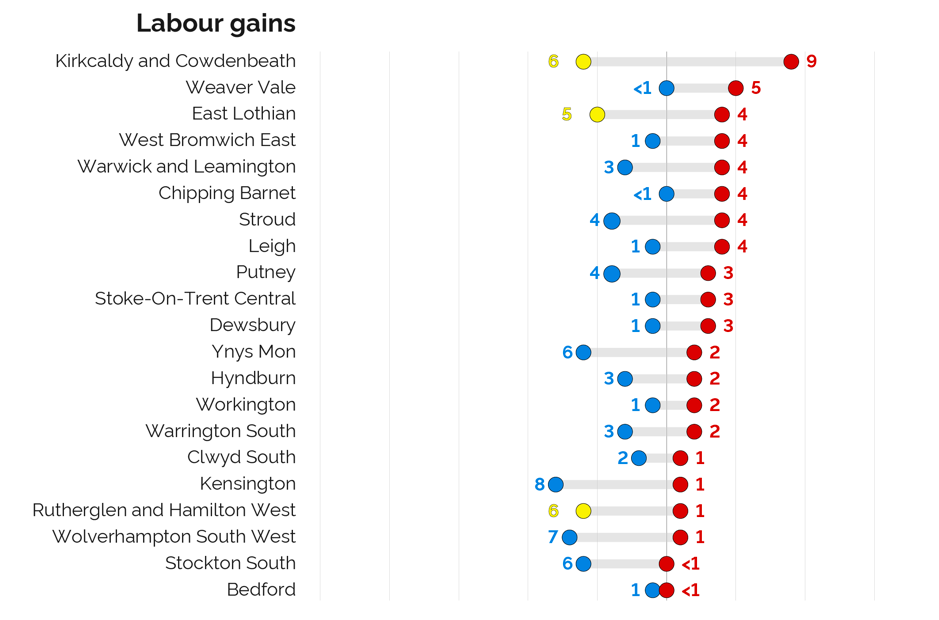There was much hand-wringing at around 10pm last night, as the final YouGov MRP model arrived, showing a dramatic narrowing and the theoretical Tory majority slashed from 68 to 28.
Every election, the polling world tries to correct for the errors of the previous cycle, and usually end up over-correcting. Last time, it was the YouGov MRP model that was much-derided and ignored, and ended up being eerily accurate; so this time, everyone is taking the YouGov MRP as gospel.
The trouble is, what the result most powerfully shows is really how astonishingly small changes in the vote share can produce totally different results. The previous YouGov model had the Conservatives on 43% and Labour on 32%, ending up with a majority of 68; the new model showing a majority of 28 has the Conservatives still on 43% and Labour on… 34%. This small change means 21 more Labour seats and a totally different world. But look at how many of those Labour seats only just get over the line since the previous model:

A tiny movement in the other direction and all those bottom seats can go blue again.
Two weeks ago, when the first YouGov model came out, I wrote:
Well, that seems to have happened, or nearly. The momentum could continue today or go in the opposite direction. Literally nobody can know, and it would be foolish to predict.
Forget the 48/52 closeness of the Brexit referendum result — this general election will take it to a whole new level. Tiny shifts in vote in each direction — less than any pollsters’ margin of error, fewer than anyone can argue is a clear expression of the ‘will of the people’ — will move large numbers of seats in or out of the Tory column and potentially change the future of the country.
Ultimately, the reason for this is that no party has managed to inspire voters with a vision of the future that puts them into proper victory territory; until that happens such tiny changes will remain decisive. This model reveals that, even if it goes the Tories’ way and ends up looking like a decisive victory tomorrow night, they’re skating on thin ice. They haven’t convinced yet.








Join the discussion
Join like minded readers that support our journalism by becoming a paid subscriber
To join the discussion in the comments, become a paid subscriber.
Join like minded readers that support our journalism, read unlimited articles and enjoy other subscriber-only benefits.
Subscribe